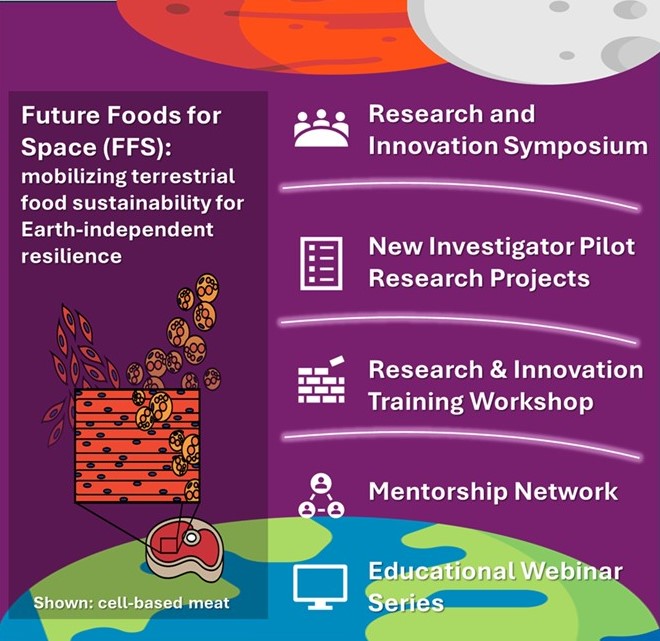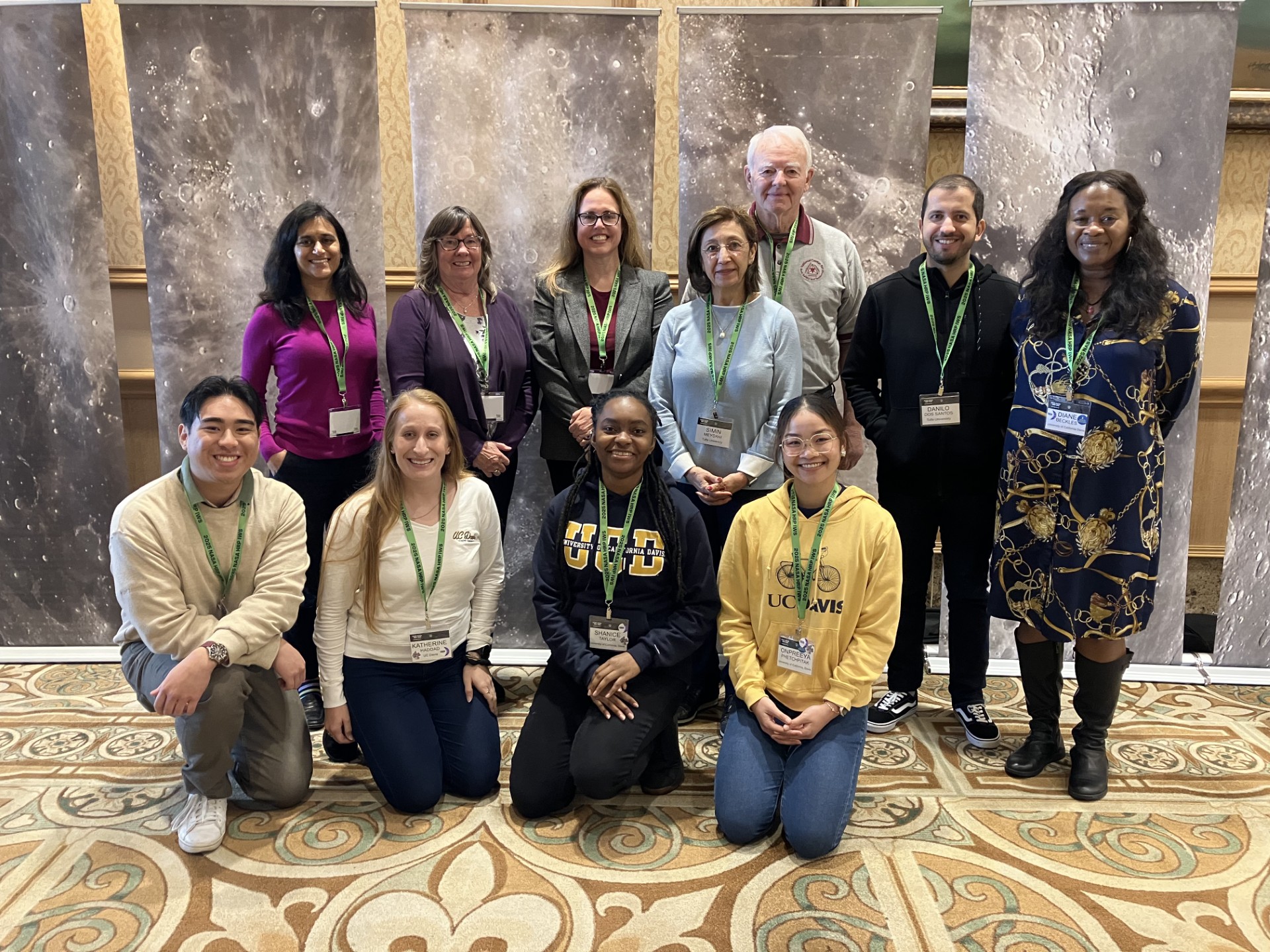Project Overview
The TRISH SHIP Future Foods for Space (FFS) project (May 2024 - August 2025) supported the development of a research community interested in the fermentation of edible proteins and other novel food technologies to optimize nutrition and space health in low earth orbit and other resource-constrained environments. The collaborative project was administered by the UC Davis Biotechnology Program under the leadership of PI Jamison-McClung in partnership with the Tufts University Center for Cellular Agriculture (TUCCA).

Team Members
UC Davis
- Dr. Denneal Jamison-McClung (Biotechnology Program)
- Prof. Karen McDonald (Chemical Engineering)
- Prof. Somen Nandi (Chemical Engineering)
Tufts University
Building Community
The overarching goal of the FFS project was to bring researchers from the public and private sectors, and their new ideas, into the space health research arena. We offered a virtual webinar series for researchers interested in learning more about the challenges and opportunities related to developing cultivated meat and alternative proteins for uses in space. A select number of FFS faculty participants at UC Davis and Tufts University also received New Investigator Pilot Research Project awards and presented research posters at the January 2025 NASA Human Research Programs Investigators Workshop Symposium. Finally, FFS participants took part in a Research and Innovation Training Workshop (April 22-23, 2025) at UC Davis to explore funding opportunities and new areas of collaborative research.
Educational Webinar Series
- Webinar 1 - September 16, 2024 - Dr. Gioia Massa, "Introducing Food Innovation in the Context of Space Health"
- Webinar 2 - December 12, 2024 - Dr. Michael Wiederoder, "Opportunities for Future Foods in Space Health Researcher"
- Webinar 3 - February 13, 2025 - Dr. Grace Douglas, "Future Foods in Space Health Research"
- Webinar 4 - August 26, 2025 - Distinguished Prof. Karen McDonald, "Figures of Merit for Space Bioproduction Systems"

New Investigator Pilot Research Projects
The cross-institutional FFS team developed pilot research award applications, jointly reviewed proposals, and made four pilot research awards (two at UC Davis and two at Tufts University):
- Space Fresh: Enhancing Tomato Fruit Longevity, Vitality & Nutrient Retention for Long-Duration Missions (Prof. Diane Beckles, UC Davis)
- Providing Optimal Servings of Fruits and Vegetables (FV) for Space Travel using Advanced Processing Technologies (Prof. Simin Meydani, Tufts University)
- Synthetic Inducible Systems for Resource-Limited Cultivated Meat Production (Prof. Priya Shah, UC Davis)
- Advanced Edible Packaging for Space Exploration: Combining Sustainability with Wireless Food Quality Monitoring (Prof. Sameer Sonkusale, Tufts University)
Though the FFS project formally ended in August 2025, the research community developed through this award is continuing to collaborate and look for new funding opportunities.
Related Resources
- TRISH SHIP Press Release by Aaron Nieto (May 9, 2024)
- Moonshots: Inside the UC Davis Center for Spaceflight Research (May 3, 2024)
- U.S. Space Command Welcomes UC Davis as its 33rd Academic Engagement Enterprise Member (February 6, 2024)
Award Acknowledgement

This work is supported by the Baylor College of Medicine's Translational Research Institute for Space Health (TRISH) - Space Health Ingress Program (SHIP) through NASA NNX16AO69A.
